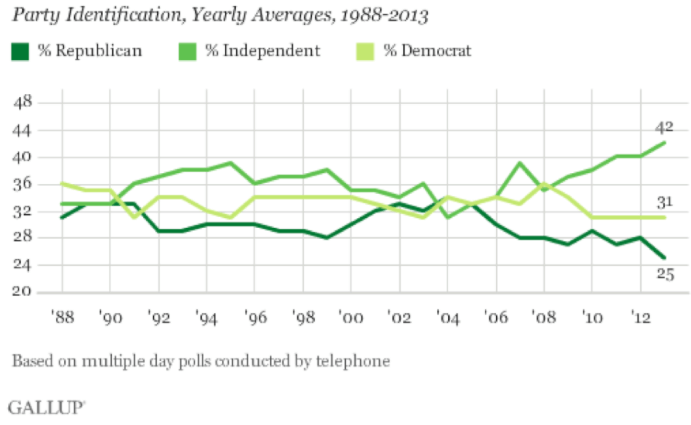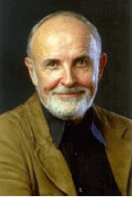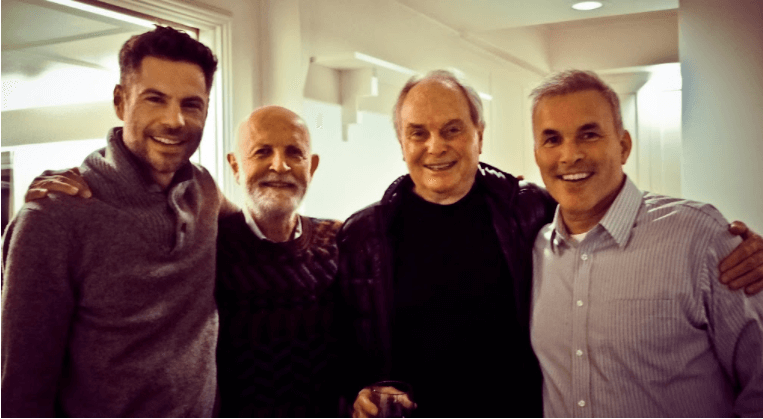Esalen eZine Volume III, January 2015

Are they a major force on the political landscape, something new under the sun? Or are they, as some argue, just the “mushy middle?” I’ll argue that Independents are to the political realm what the spiritual-but-not-religious are to the sectarian realm—a genuinely new force.
Let’s start with the facts. We know that self-declared Independents outnumber both self-declared Democrats and self-declared Republicans, 42 percent, 31 percent and 25 percent of the voting-age public, respectively, as of 2013. What we’re less sure about is how to interpret the significance of those numbers.

Just by the fact that Independents represent the largest group and are growing, they must hold some significance. Size matters when it comes to political power. But size isn’t everything.
As respected pundits like Thomas Mann, Norman Ornstein[1], Alan Abramowitz[2], and Morris Fiorina[3] all note, when you look closely at the numbers, it turns out that there’s a big block of Independents whose voting patterns are more reliably liberal than your average Democrat, even as there is another block of Independents whose voting patterns are more reliably conservative than your average Republican.
So how “independent” are they?
Of those Independents who lean neither Left nor Right, most are not so much “moderate” as they are ignorant and indifferent. They just don’t care. They’d rather talk about something else, almost anything else. Does this slice qualify as “the mushy middle?”
If you diminish the significance of the Independents by dividing them, like Gaul, into three parts—behaviorally Left, behaviorally Right, and behaviorally indifferent—and then conquer the phenomenon by reducing its significance to various shadows of the old standbys (Liberal and Conservative, Democrat and Republican), you’ll miss something that is genuinely new under the sun.
Historical Context
See the shift from the perspective of the vast sweep of history. Once upon a time, the rudders of history were turned by religious leaders: shamans, priests, and popes. Then, in the West at least, there was something called the Reformation. The church separated from the state, and power passed from religious leaders to political leaders, from the priests and the popes to presidents and prime ministers.
There were visible signs of the shift from what we might call the Religious Era to the Political Era. During the Middle Ages, the tallest building in most towns was the church or the cathedral. During the nineteenth century, at the height of the Political Era, town halls and capitol buildings outstripped the churches and cathedrals to become the tallest buildings in town.
In order to grasp the significance of the Independents, it’s useful to place their ascent within the context of a shift from the Political Era to the Economic Era. Similar to the separation of church from state during the Reformation, we are now witnessing a separation of the state from the marketplace.
It’s called deregulation or privatization. Just as power once passed from the priests and the popes to presidents and prime ministers, now power is passing from presidents and prime ministers to the leaders of large corporations and the holders of vast fortunes.
Just as the spiritual-but-not religious have left the church in order to pursue their spirituality in less organized, more private ways, so the Independents have left the churches of the political parties in order to address social issues in less organized, more private ways. They volunteer as much as their party-affiliated peers. They give as much to philanthropies.
Just as they buy their music by the song and not the whole album (credit to John Avlon, editor-in-chief of The Daily Beast, for that line), they pick their causes one-by-one rather than pulling the lever for the entire party slate.
With the exception of that small slice of the indifferent, mushy middle, most Independents care as much as Republicans and Democrats about social issues like same-sex marriage, immigration, gun control, tax policy, or economic inequality.
But unlike their Republican and Democratic peers, Independents no longer believe in the efficacy of our political institutions to address those issues, whether that be Congress or the political parties. They have "left the church" of organized politics. Now they pursue their social agendas either privately or at work.
Former student radicals have become hedge fund managers, of which there are more than a few. Here’s the rap: “We tried revolution by manning the barricades, and it didn’t work. The levers of power for change are no longer in Washington or in the state capitols, if they ever were there. The levers of power are in the marketplace. That’s where innovation happens. That’s where job creation and wealth creation happen. That’s how lives get changed, not by the benevolence of some god, priest, or politician."
“So forget politics,” the Independent rap continues. “Sure, you go through the motions. You vote. Sometimes it still makes a difference who’s in office. But if you really want to make a difference (and many Millennials do), you’ll need economic power more than political power.”
Please understand: The dawn of the Economic Era no more means the disappearance of the state than the dawn of the Political Era meant the disappearance of the church. These vast systems of institutionally codified beliefs don’t evaporate overnight. They live on and on beyond what many regard as their proper shelf life. But it’s a matter of foreground and background. Where’s the center of the action? Who’s in the foreground and who’s being elbowed into the background, if not altogether offstage?
We’re talking tectonic plates here: shifts so vast, slow and fundamental that you don’t notice them on the surface. Then you wake up one day like Rip Van Winkle and notice that the center of the city is no longer the cathedral or the town hall, but some skyscrapers that house giant global corporations.
Just as you stopped attending church regularly some years ago and began meditating on your own, now you wonder whether it’s worth the time and effort to follow politics or vote, much less contribute to the coffers of some lackluster political candidate.
The context has shifted. Just as the ballot box once replaced the collection plate as the place where you registered your support for the powers that be, so the cash register and PayPal have replaced the ballot box as the new receptacles for your preferences.
Left? Right? Who cares? Liberalism and Conservatism are outdated ideologies, just as Methodism and Lutheranism are outdated religions. Party platforms are catechisms we no longer memorize. Voting has all the efficacy of prayer.
There’s a new game in town and it’s called the economy, stupid. Don’t bother me with so-called Policy. Rules set by politicians are rarely effective, just as the rules (read Commandments) laid down by religious leaders were usually less effective than the Priests had hoped.
Anarchist, Meet Libertarian
Placing the rise of the Independents within the context of the shifts (e.g., Religious Era to the Political Era, and Political Era to the Economic Era) helps to illuminate another phenomenon that’s hard to fathom in the old vocabulary of political ideology. Namely, the odd meeting of left-wing anarchists and right-wing libertarians where the old left-right spectrum bends back upon itself in a long, sagging arc of threatened obsolescence.
Anarchists and Libertarians want off the Left/Right spectrum altogether. They’re both fed up with the old political game. They just articulate their disgust with slightly different justifications.
Place an old lefty like Murray Bookchin, author of Post-Scarcity Anarchism, next to a Libertarian like Murray Rothbard, much quoted on the Right, and you won’t see that much daylight between them. The tale of two Murrays is illustrative: They both care much more about what’s going on in the marketplace than in governments.
The ascents of the Independents, the Anarchists (e.g., Occupy movement), and the Libertarians (e.g., Koch brothers and some of their Tea Party friends) are all of one piece, all different parts of this vast shift from the Political Era to the Economic Era. They may look different on the surface, but down deep they all seethe with a similar disaffection with the political process.
They may have very different economic interests, but they share a strong, if sometimes inchoate, awareness of the obsolescence of the political process, and its inability to bring about whatever changes they would like to see or resist.
The rise of the Independents is therefore a Big Deal. It’s historic—the end of one era and the beginning of the next. Where will it lead? That’s a story for another day, and a much longer essay that gets a better grip on those still not very well understood folks who call themselves spiritual-but-not-religious.
For now let’s just say: Forget organized religion, even though you care very much about the spiritual. Forget organized politics, even though you care very much about social justice. You wanna help people? Get a job, grow a business, create some value, and give someone else a job. Then figure out how to do that job faster, cheaper, quicker and greener . . . and hire a whole lot more people.
That’s where the action is this century—and the Independents know it.
[1] Mann, Thomas and Ornstein, Norman. It’s Even Worse Than It Looks. New York: Basic Books, 2012.
[2] Abramowitz, Alan I. The Polarized Public: Why American Government is So Dysfunctional. New York: Pearson Longman, 2013.
[3] Fiorina, Morris P., Culture War? The Myth of a Polarized America, New York: Pearson Longman, 2006.
Disclaimer: The views and opinions expressed in this eZine are those of the authors and do not necessarily reflect the official policy or position of Esalen Institute.

JAY OGILVY is a member of Esalen’s Board. Trained in philosophy (Yale PhD in 1968), he transitioned into contract research and consulting at SRI International (formerly Stanford Research Institute) from 1979 to 1986.
In 1987, he and four friends founded Global Business Network, a boutique consultancy that specializes in using scenario planning to develop long-range strategies for large corporations and government agencies.
Jay is the author of Many Dimensional Man: Decentralizing Self, Society and the Sacred (Oxford, 1977; Harper& Row, 1980); Creating Better Futures (Oxford, 2000); China’s Futures with Peter Schwartz (Jossey-Bass, 2001); and Living Without a Goal (Doubleday, 1996). He edited Re-Visioning Philosophy (SUNY Press, 1991), an anthology based on a series of conferences at Esalen and Cambridge University. He also edited An Actual Man: Michael Murphy and the Human Potential Movement (2010).
The Esalen eZine is edited and curated by Esalen Board member Jay Ogilvy. To make comments or suggestions, please email him at j.a.ogilvy@gmail.com or write to:
Esalen eZine, c/o Jay Ogilvy
3771 Rio Rd. Suite 101
Carmel, CA 93923

